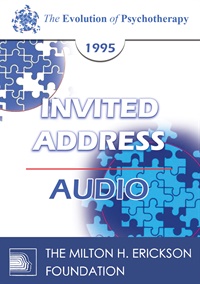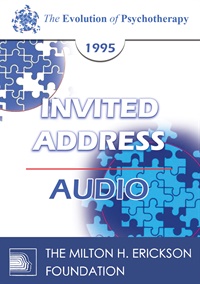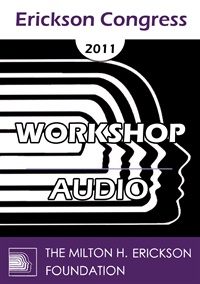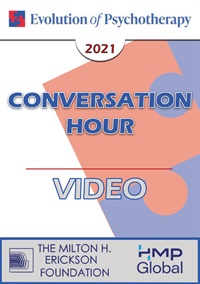- Average Rating:
- Not yet rated
- Topic Areas:
- Conversation Hours | Psychoanalysis | Psychotherapy
- Categories:
- Evolution of Psychotherapy | Evolution of Psychotherapy 2021
- Faculty:
- Nancy McWilliams
- Course Levels:
- Master Degree or Higher in Health-Related Field
- Duration:
- 1 hour
- Format:
- Audio and Video
- Original Program Date:
- Dec 03, 2021
- Short Description:
- Although researchers evaluating therapy outcomes necessarily rely on measures of symptom relief and behavior change, practicing clinicians – and many patients – often have a more ambitious vision of meaningful change and growth. In this conversation hour, we will talk about the therapeutic goals of increased attachment security, sense of agency, affect tolerance, flexibility and maturity of defenses, self-reflection, mentalization, realistic and reliable self-esteem, vitality, capacity to mourn what cannot be changed, and overall engagement in love, work, and play.
- Price:
- $59.00 - Base Price
Tags: Psychoanalysis Psychotherapy
- Average Rating:
- Not yet rated
- Topic Areas:
- Great Conversations | Psychoanalysis | Psychotherapy
- Categories:
- Evolution of Psychotherapy | Evolution of Psychotherapy 2021
- Faculty:
- Otto Kernberg, MD
- Course Levels:
- Master Degree or Higher in Health-Related Field
- Duration:
- 1 hour
- Format:
- Audio and Video
- Original Program Date:
- Dec 03, 2021
- Short Description:
- A Great Conversation featuring Otto Kernberg, MD, from the 2021 Evolution of Psychotherapy Conference.
- Price:
- $59.00 - Base Price

- Average Rating:
- Not yet rated
- Topic Areas:
- Invited Addresses | Psychoanalysis | Anxiety | Psychotherapy | Research
- Categories:
- Evolution of Psychotherapy | Evolution of Psychotherapy 1995
- Faculty:
- Albert Ellis, PhD | Joseph Wolpe, M.D.
- Duration:
- 1:31:10
- Format:
- Audio Only
- Original Program Date:
- Dec 14, 1995
- Short Description:
- In the early decades of the 20th century Freud's mastery of the craft of presenting a case enthroned a belief that anxiety disorders were caused by repressed emotional complexes and that recovery required the restitution of repressed ideas. This belief dominated psychotherapeutic practice, and even though little was to be seen in the way of success, any alternative was treated with scorn. Mid-century studies of experimental neuroses showed that these disturbances were the consequence of the learning of maladaptive anxiety and could be overcome by systematic counteraction by other emotions.
- Price:
- $15.00 - Base Price

- Average Rating:
- Not yet rated
- Topic Areas:
- Invited Addresses | Psychoanalysis | Psychotherapy
- Categories:
- Evolution of Psychotherapy | Evolution of Psychotherapy 1995
- Faculty:
- Otto Kernberg, MD | Thomas Szasz, MD
- Duration:
- 1 Hour 25 Minutes
- Format:
- Audio Only
- Original Program Date:
- Dec 16, 1995
- Short Description:
- The major emphasis in contemporary psychoanalytic psychotherapy is on the early and consistent interpretation of the transference. A growing attention to countertransference analysis, to the risk of "indoctrinating" patients, to character analysis, to the analysis of unconscious meanings in the "here and now" also are dominant trends. Significant controversies continue regarding the importance of the "real" relationship, the therapeutic versus the resistant aspects of regression, the role of empathy, and the relation of historical to narrative truth.
- Price:
- $15.00 - Base Price

- Average Rating:
- Not yet rated
- Topic Areas:
- Workshops | Psychoanalysis | Psychodrama | Hypnotherapy | Utilization | Multicultural
- Categories:
- Erickson Congress | Erickson Congress 2011
- Faculty:
- Eric Greenleaf, PhD
- Duration:
- 59 Minutes
- Format:
- Audio Only
- Original Program Date:
- Dec 07, 2011
- Short Description:
- From psychoanalysis, to psychodrama, to hypnosis, therapists have employed ritual and ceremony to aid their patients. This workshop will provide a hypnotic experience based on the Balinese Cleansing Ceremony. Utilization of available and invented ceremonies from participants’ lives will also be developed as aides to therapy, and practiced by participants.
- Price:
- $20.00 - Base Price
Please wait ...



